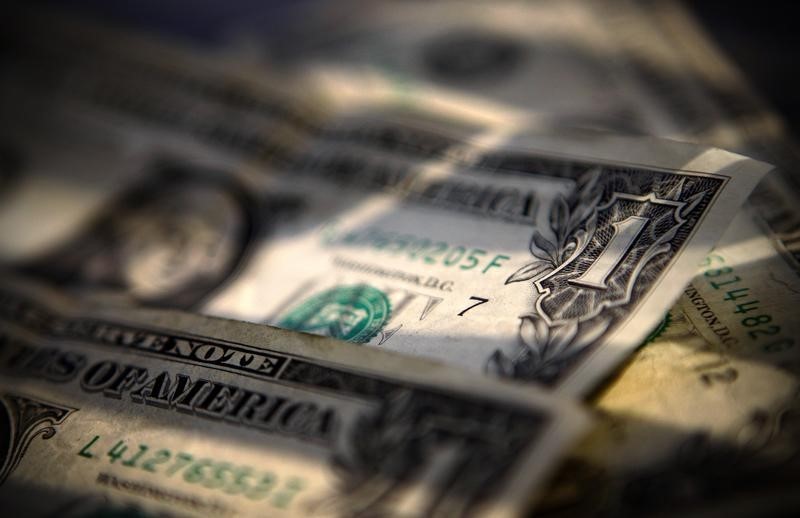By Peter Nurse
Investing.com – The U.S. dollar edged higher in early European trade Wednesday, stabilizing after the previous session’s weakness as Federal Reserve Chair Jerome Powell soothed fears the central bank will tighten monetary policy aggressively this year.
At 2:55 AM ET (0755 GMT), the Dollar Index, which tracks the greenback against a basket of six other currencies, traded just higher at 95.675, after falling to 95.535 in the Asian session, the lowest since Nov. 18.
USD/JPY traded 0.1% higher to 115.41, recovering from a one-week low of 115.04 at the start of the week. EUR/USD edged lower to 1.1357, GBP/USD was flat at 1.3632, just off a one-month high. The risk-sensitive AUD/USD climbed 0.1% to 0.7217, climbing to its highest in a week.
Powell expressed confidence, in his renomination testimony on Tuesday, that the U.S. economy was strong enough to cope with higher interest rates and a runoff of its asset holdings to combat inflation. However, he added policymakers were still debating their plans on reducing the central bank’s balance sheet, allaying market fears for a sudden withdrawal of monetary support.
“What he didn’t say was also important. He didn’t back four rate hikes in 2022, nor a March start to hikes, nor did he give any details on when the Fed balance sheet run-off would start,” said Jeffrey Halley, an analyst at OANDA.
Previous Fed speakers had taken a more hawkish line, with Atlanta Fed President Raphael Bostic and his Kansas City counterpart Esther George saying this week that high inflation and a strong recovery warrant a rapid rundown of Fed asset holdings.
Attention will now turn to the release of the latest U.S. consumer inflation data later in the session, with headline CPI expected to come in at a hefty 7% on a year-on-year basis.
“The U.S. inflation data later today will either confirm a period of U.S. dollar weakness or result in a nasty whipsaw in price action,” Halley added.
Elsewhere, USD/CNY fell 0.2% to 6.3646 after the release of China’s consumer and factory-gate inflation for December.
The consumer price index grew 1.5% year-on-year, lower than November’s 2.3% growth, while the producer price index rose 10.3%, a slowdown from November’s 12.9%. The figures give the People’s Bank of China space to loosen monetary policy further to cushion the impact from a slowdown in the giant real estate sector.
Source: Investing.com


